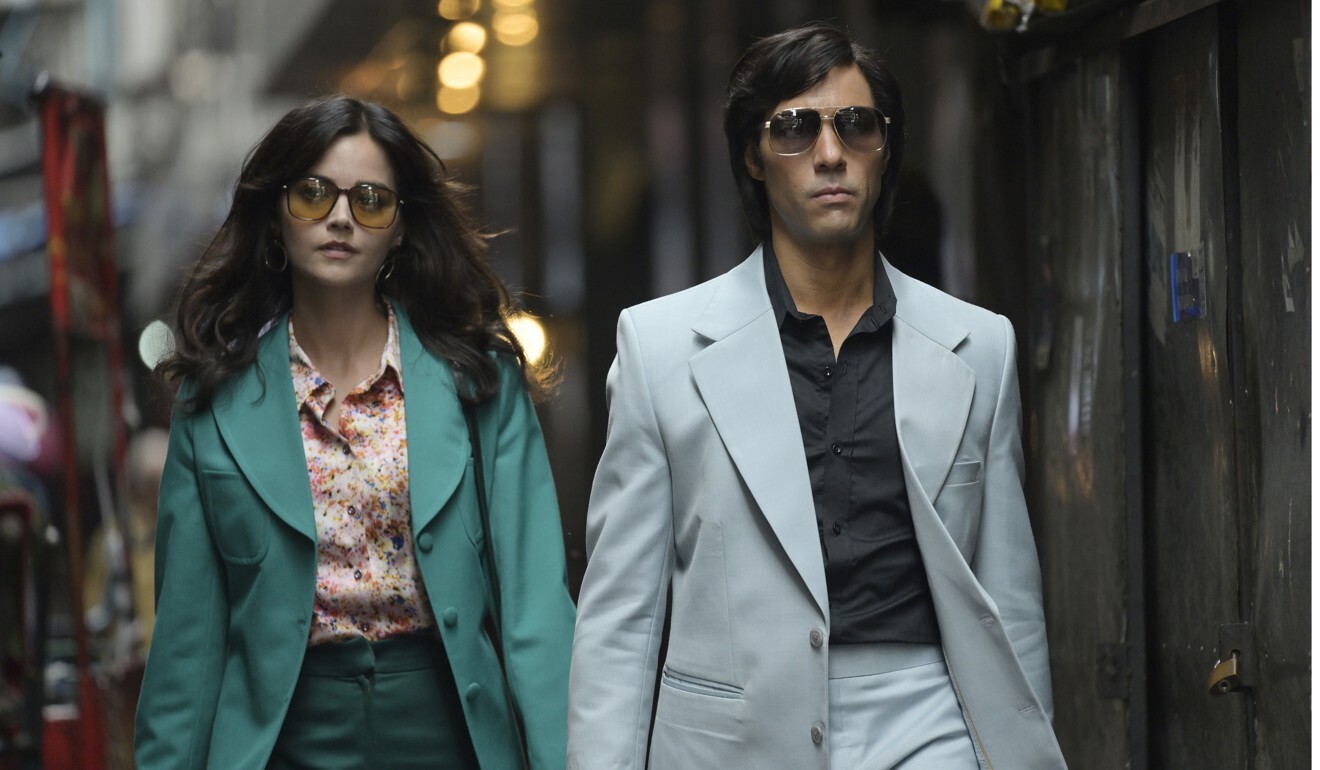
Russell Crowe’s Thailand tour tweets reveal silver lining in tourism-dependent economy’s Covid-19 struggle
- The star, in Bangkok to work on ‘The Greatest Beer Run Ever’, has been posting pictures of his experiences with lizards, temples and tuk tuks on social media
- While tourists have been staying away, revenue from filmmaking has boomed in a land known for its ability to ‘metamorphose’
While tourists have been giving Thailand a wide berth – resulting in its economy shrinking by over 6 per cent in 2020 – revenue from filmmaking shot up to 3.4 billion baht (US$101 million) between January and October this year, compared to 929 million baht (US$27 million) between January and September 2020.
He shared images of the orange sky at sunset, Phuket’s palm trees and the turquoise sea. He also tweeted “Lost in Bangkok” as he biked around the Thai capital and encountered a native monitor lizard, which he dubbed “My new buddy”.
This was after he tweeted pictures of his tour of Bangkok, with temples and tuk tuks in the background.
Crowe, 57, is reportedly in Bangkok to work on a film called The Greatest Beer Run Ever. A source said the film began shooting in Thailand several months ago.
Thailand has long been a popular destination for filmmakers and was hit when the global industry was brought to a standstill as Covid-19 swept through the world last year. But it has seen a rebound this year. Udom Matsayawanigul, director of the Thailand Film Office, said 74 foreign films had been shot in Thailand this year, compared to 176 last year, and the 740 films in 2019 that generated 4.8 billion baht in revenue.
Udom said that since July 2020, nearly 600 members of foreign film productions had visited Thailand and no Covid-19 cases had been reported among them. He expected the reopening in November would boost his agency’s effort to promote Thailand among international filmmakers after travel curbs meant the office was not able to attend film festivals in Cannes or Shanghai as it normally did.
“During this difficult time, the filming teams, sometimes as large as 300 to 400 people, have helped create jobs in the local areas as they hire the locals or book out hotels in the province,” he said, adding that the teams often spent on average three to five months at a time shooting a film.
Productions of films, commercials and reality shows need approval from the Thailand Film Office. The minimum production value of 50 million baht qualifies for a cash rebate of 15 per cent, while, as a special incentive during the pandemic, until the end of 2022, films with a budget of 100 million baht will receive a cash rebate of 20 per cent.
Beyond ‘The Serpent’: Charles Sobhraj through the eyes of those who knew him
“We also want foreign productions to hire Thais in positions such as assistant director, [so we offer] higher incentives for that as well,” Udom said.
Prominent Thai film critic Kong Rithdee said: “Thai film crew are well-known for their quality and experience working with international productions.
“Thailand also offers a variety of locations and scenery, and most importantly, we are ready to ‘metamorphose’ – meaning [we are able] to provide locations and extras for stories that aren’t even about Thailand, such as what we see in The Serpent, Extraction, or back in the old days, The Killing Fields, The Deer Hunter and the Hong Kong film In the Mood for Love,” he said.

While Thailand has appeared in blockbuster films such as American Gangster (filmed in Chiang Mai), Bangkok Dangerous starring Nicolas Cage and The Hangover Part II, film critic Kong said one of his favourite productions had been a low-budget Danish film.
“Teddy Bear was a little-known but very good Danish film about a Danish bodybuilder in Pattaya. It’s so tender and eye-opening, and the way the film uses Pattaya is fresh and unexpected. It’s not what you think Pattaya could be at all.”

